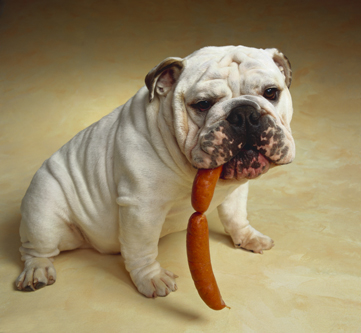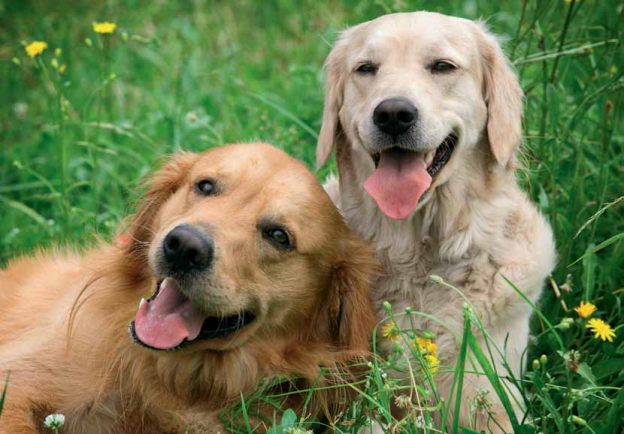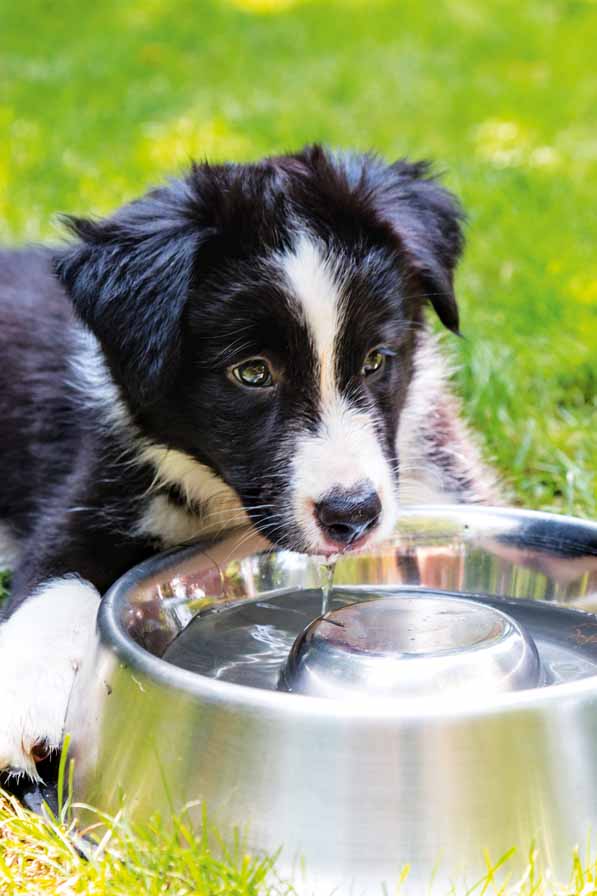
Dogs need a balanced diet that includes all the essential nutrients and vitamins. However, as temperatures change, so must your dogs diet. Michelle Minehan caught up with experts to find out what foods and supplements is required to make sure you provide a nutritious winter diet for dogs.
Veterinarians say that because most of Australia enjoys a temperate climate, a dogs winter diet can be fairly consistent with the other nine months.
However, small adjustments may be necessary to suit different dogs needs, says Dr Mark Yee, veterinarian at Bexley Vet Hospital in NSW.
A winter diet should be balanced in its composition of protein, fat and carbohydrates and all commercially prepared diets as well as natural diets that you may have put your dogs on should give them the nutritional balance they require, Yee said. Dogs that live in the Alpine regions, however, or those which tend to feel the cold more in the winter months may need a little more volume of what they consume to allow for an increase in energy expenditure with exposure to colder temperatures.
Dogs that are prone to arthritis also need a change in their diet throughout the colder months to help lessen the symptoms.
These dogs should be considered for nutritional supplementation of products that contain glucosamine hydrochloride and chondrotin sulphate, Yee said.
Supplements for winter
Glucosamine is a nutrient that acts as a building block of cartilage to help reconstruct damaged joints and maintain normal joint health, while Chondrotin helps block the enzymes that break down the cartilage. Some nutritional supplements may also contain green lip mussel, abalone and shark cartilage, he added. These supplements are generally available in the form of powders to sprinkle over the food or as separate treats to be given daily.
The products that use these ingredients are sourced according to strict world conservation guidelines, Yee said. The benefit to your dog is gained through a nutritional supplement that will provide an increase in joint lubrication and health as well as dealing with pain and inflammation.
Yee also advised supplementing older and more active dogs with a product that will help protect their joints in the cold weather. These products, like Sashas Blend and Joint Guard, contain ingredients that target arthritis. (For more information on arthritis treatments, check out the Wintercare article on page 16.)
For older dogs, particular supplements would maintain joint function and reduce pain from any pre-existing arthritis and for active dogs, they would help prevent arthritis from excessive wear and tear on joints, Yee said.
A balanced puppy diet
According to Yee, puppies do not require different foods or supplements during the winter months. Puppies have a greater need for energy in their diet compared to an adult dog, as they grow rapidly in their first six to 11 months of life, he said. A puppys diet should be balanced for their particular breed and rate of growth and many of the commercial brands offer such foods for small-, medium- and large-breed puppies.
Overall, its the joints of dogs both young and old that tend to suffer the most through the winter months; hips, knees, elbows and wrist joints are more commonly affected in colder weather. Yee advised discussing this with your vet before self-diagnosing and changing your dogs diet, including adding supplements to prevent or ease the pain of arthritis and sore joints.
Colder weather can also increase stress and lower the immune system, which can lead to susceptibility to illness and disease. A healthy diet, along with preventative measures such as regular health checks and adequate bedding and shelter from the elements, will help avoid all these problems, Yee said.
Changing your dogs diet naturally
Natural diets have become popular over recent years, and not just for humans. Dogs Life spoke to naturopath Sarah Griffin about which natural foods and supplements are good to include in a winter diet for dogs.
For a winter diet, I recommend providing more warming meals to keep the dog warm during the colder months, she said. The body has an increased need for energy production so consider adding a little more fresh red meat to their diet.
Griffin also suggested using slightly fattier cuts of meats if your pooch doesn’t have a weight problem, because the fattier cuts provide a lot of energy. She also suggested providing more carbohydrates by adding more root vegetables to the diet.
Adding carbohydrates
Root vegetables, with the exception of carrots, need to be well cooked for dogs to digest easily, she said. Cooked well does not mean boiling them to an absolute mash either; they should just be firm, but without raw pieces when mashed. They are more likely to be eaten and easier to consume if mashed up.
Griffin said the best foods to use for this include potatoes, parsnips, swede, beetroot, sweet potato and carrots. These veggies are best because they grow underground in the dark; naturopathically, they are considered warming and nurturing, she said.
Other great foods to add to a winter diet would be pumpkin, celery, spinach, brussels sprouts, cabbage, beans, cauliflower, zucchini, choko and other types of marrow vegetables.
The same rules that apply with cooking root vegetables also apply to these veggies, especially spinach, Griffin said. Vegetables such as cauliflower, brussels sprouts and cabbage do contain high amounts of sulphur-containing amino acids, which can make flatulence a little more frequent and slightly more odorous, but they are important for many functions, including healthy hair growth.
Griffin explained that a thick, healthy coat means being nice and warm in winter, but she stressed not to include corn and peas and never add onions to your poochs natural diet. Also consider including more cooked rice and porridge to your dogs winter diet.
Naturally healthy tips
Griffin shared some naturally healthy tips for a balanced winter canine diet:
Puppies
Puppies need a balanced diet for growth. If the diet is fully balanced, supplementation should not be necessary. Dont add extra calcium to the diet as this is used in the body in a delicate balance with other minerals, such as phosphorous and magnesium. Unwittingly, changing that balance can lead to health problems.
Older dogs
More frequent meals are necessary for older dogs. They should be easy to digest, with less bones to avoid constipation. Add a good multi-vitamin to their diet. As your dog ages, its body is less able to absorb nutrients as efficiently as it used to. By providing increased nutrients, the body has a better chance of having available what it needs.
Active dogs
All of the above with the exception of the multi-vitamin is best for more active dogs.
What can ease some common problems in wintertime?
- Joint inflammation/arthritis supplement meals with glucosamine and chondroiten, fish oils, evening primrose oil, flaxseed oil, green lip mussel extract, parsley, spinach and nettles. The herbs can be chopped finely and added fresh to the diet (except nettles).
- Runny eyes from the wind and cold bathe daily and clean the sleep out of the corners of the eyes every day.
- Increased matting of the coat this is not just uncomfortable but can also restrict full movement. This can be caused by wearing winter coats more frequently or because the dogs natural coat has been allowed to grow longer for winter. The only way to avoid this problem is by extra brushing and grooming.







